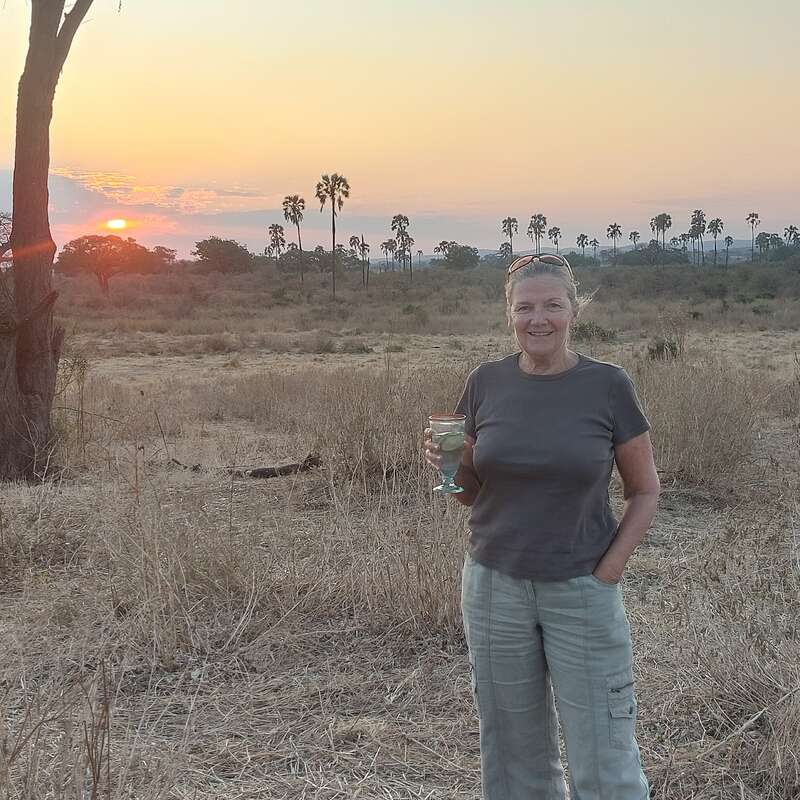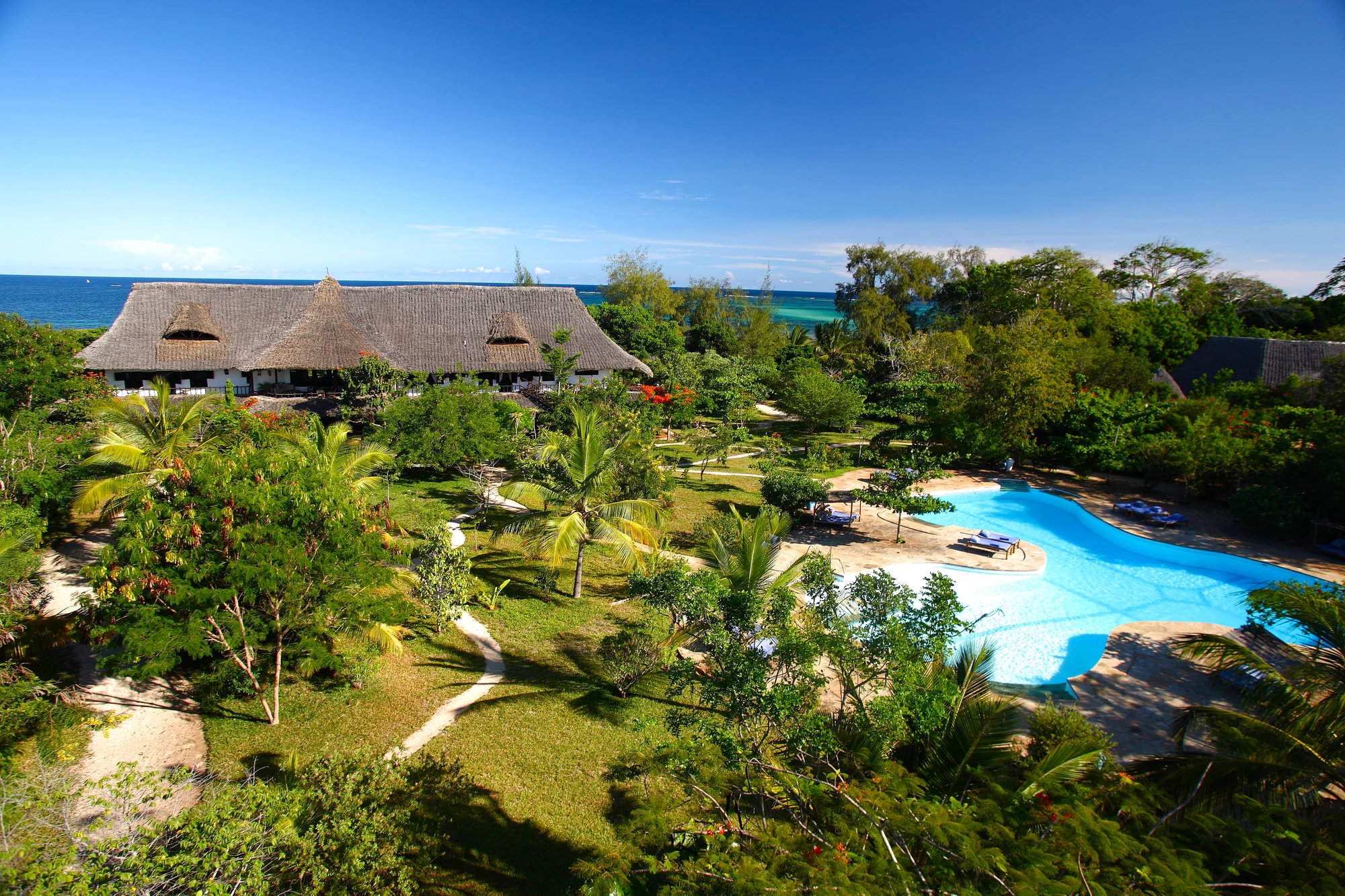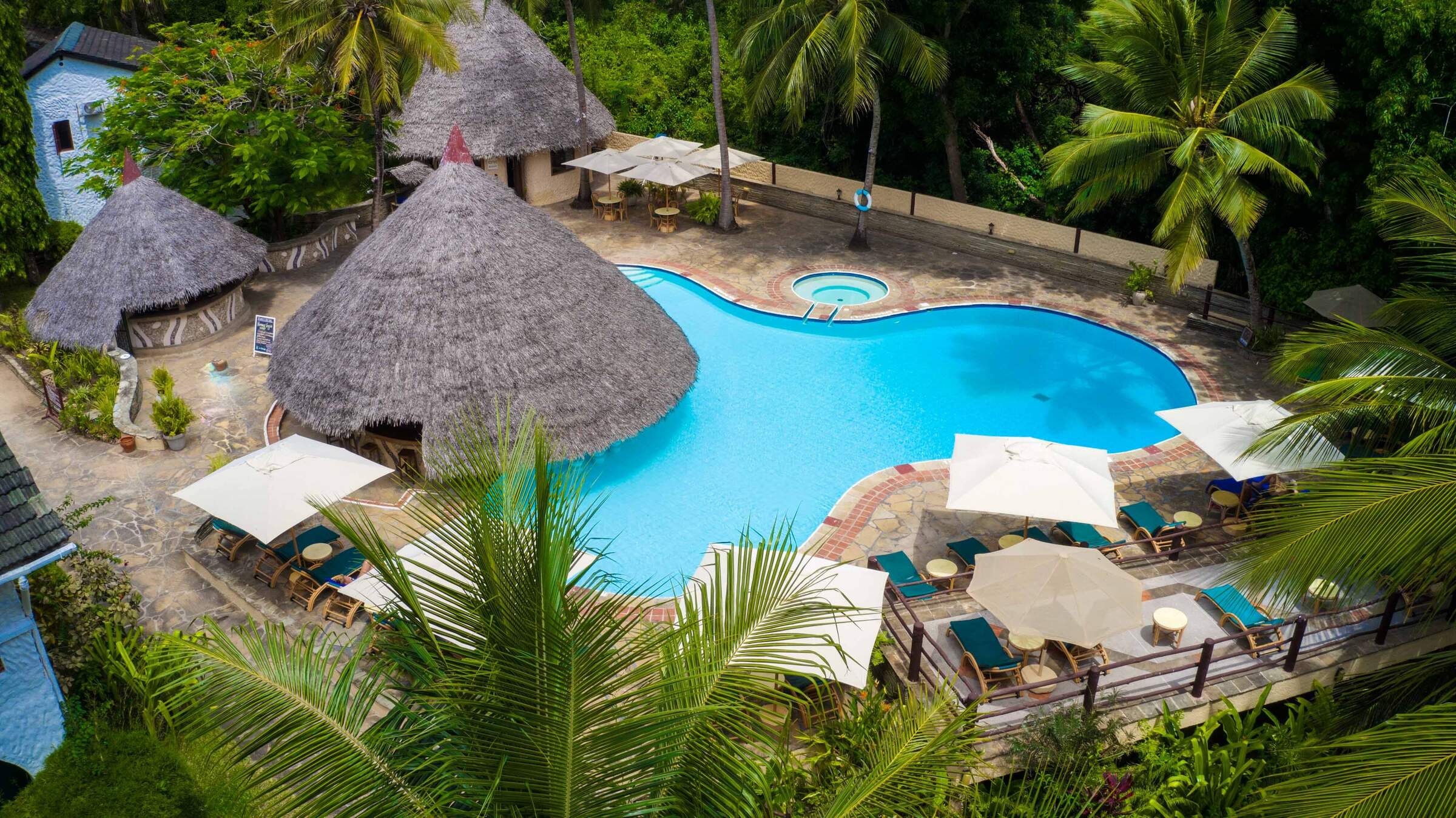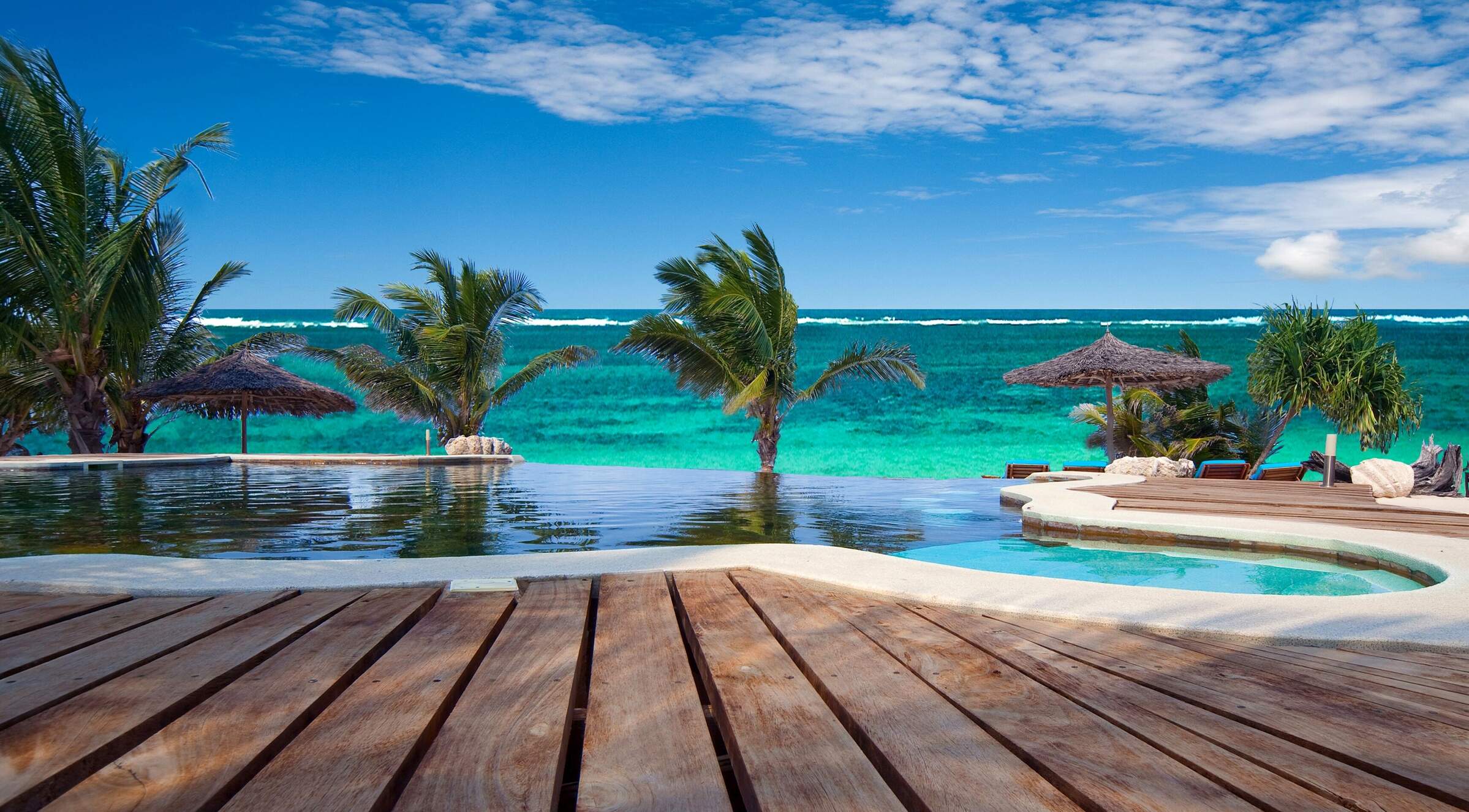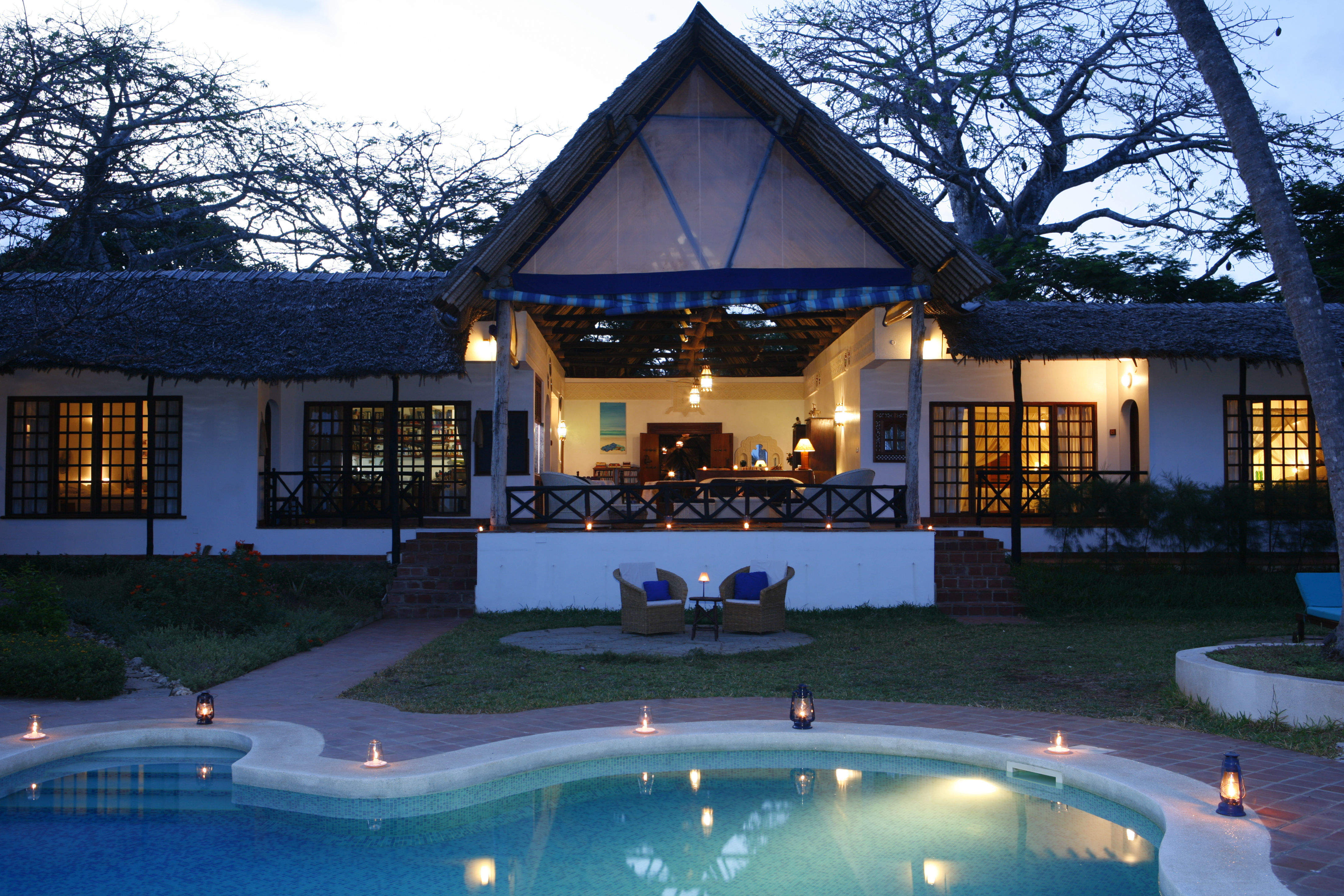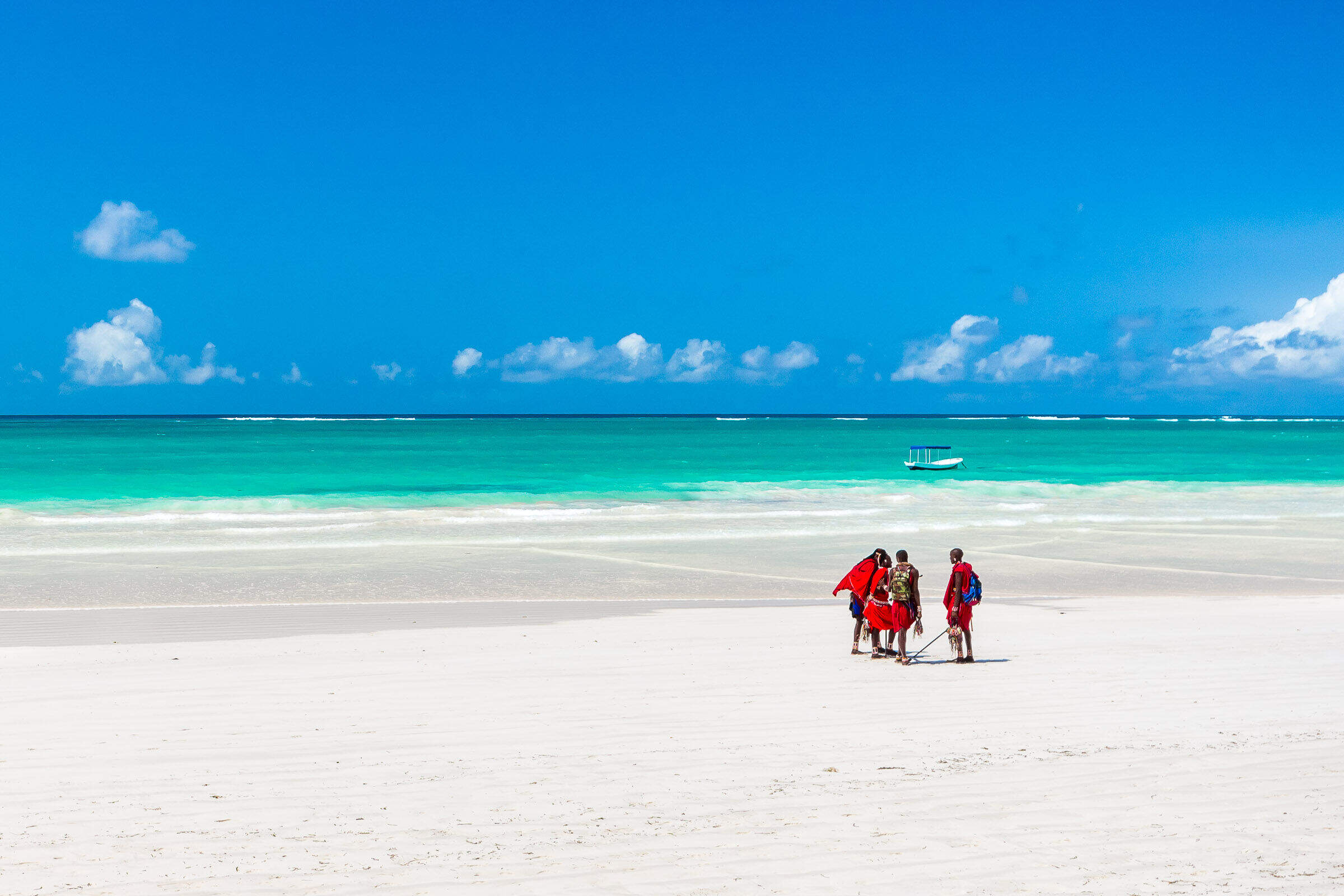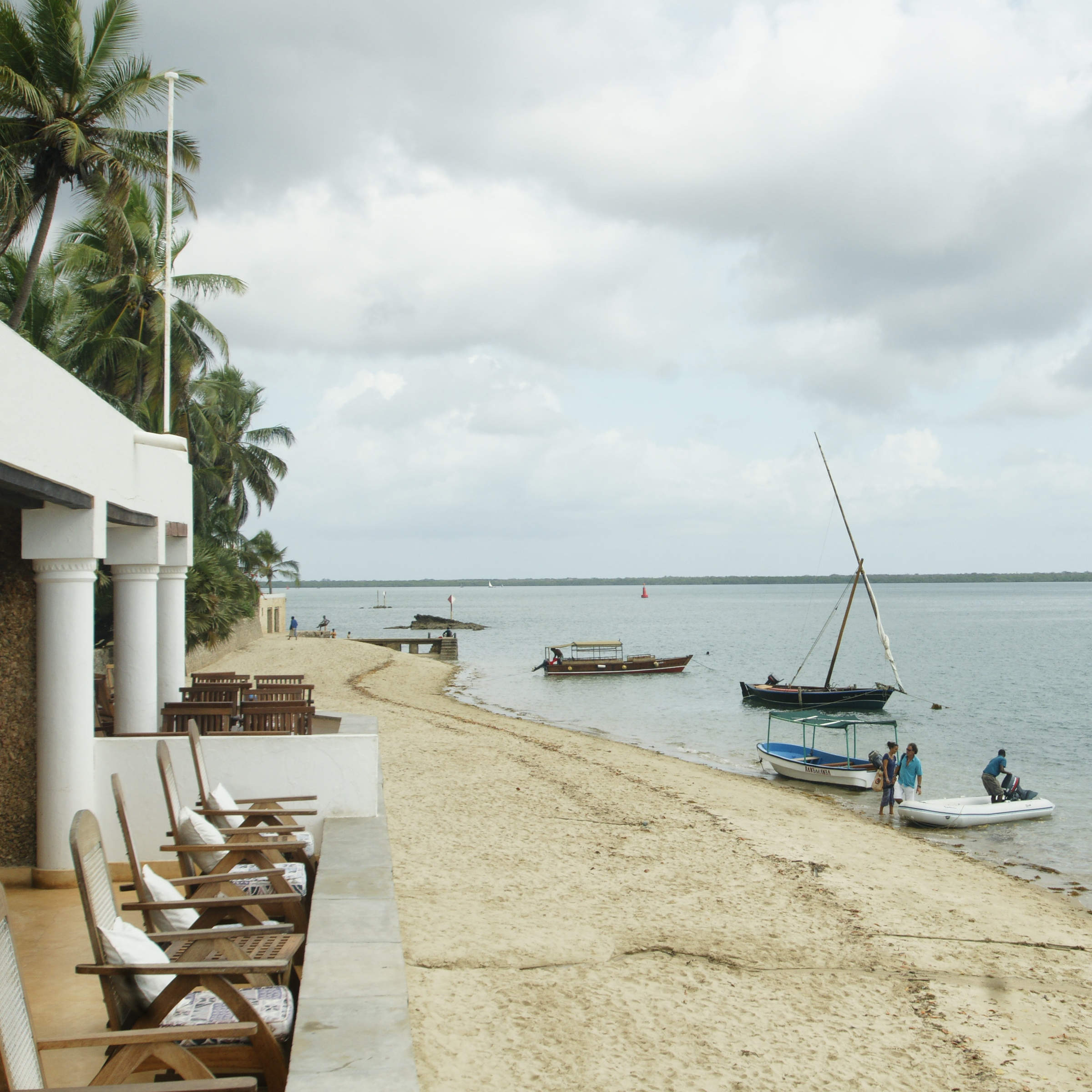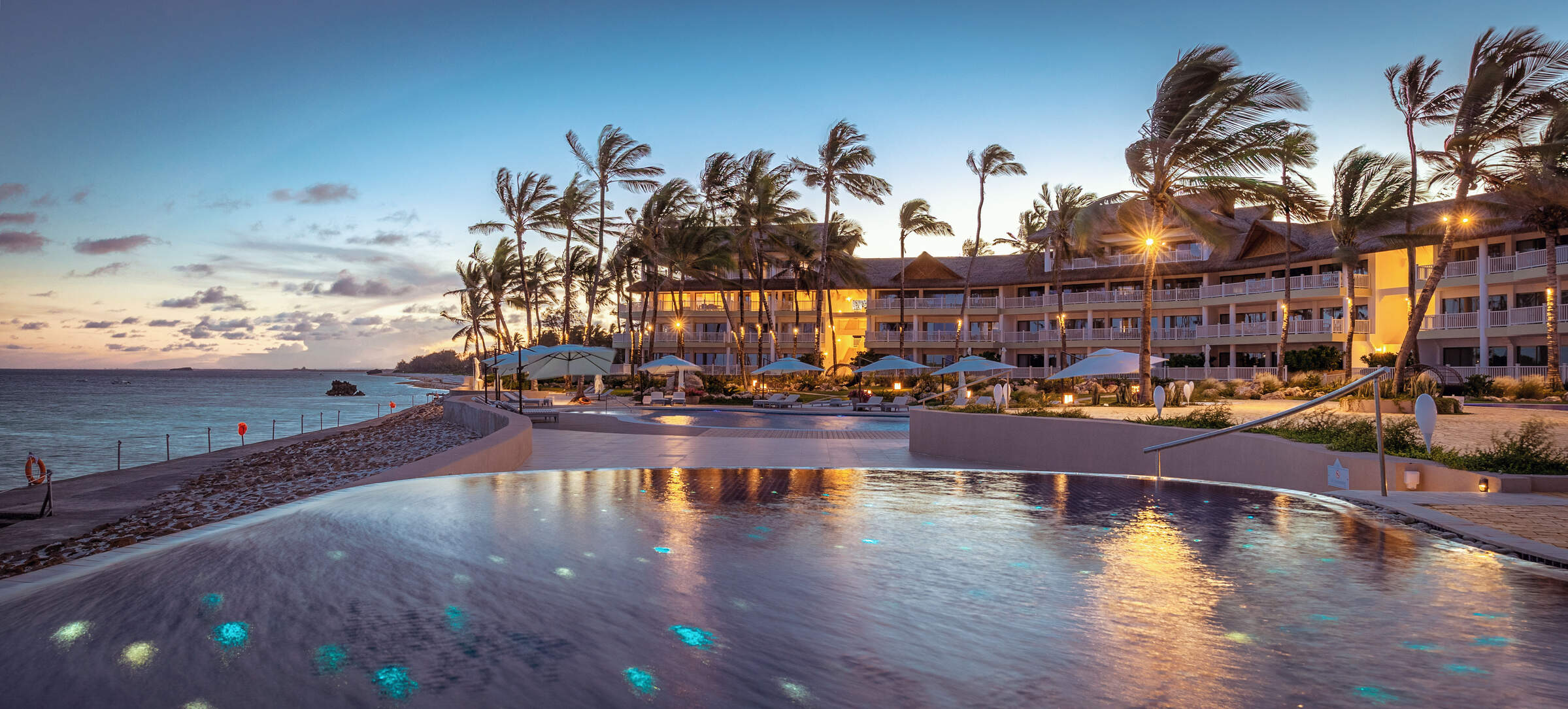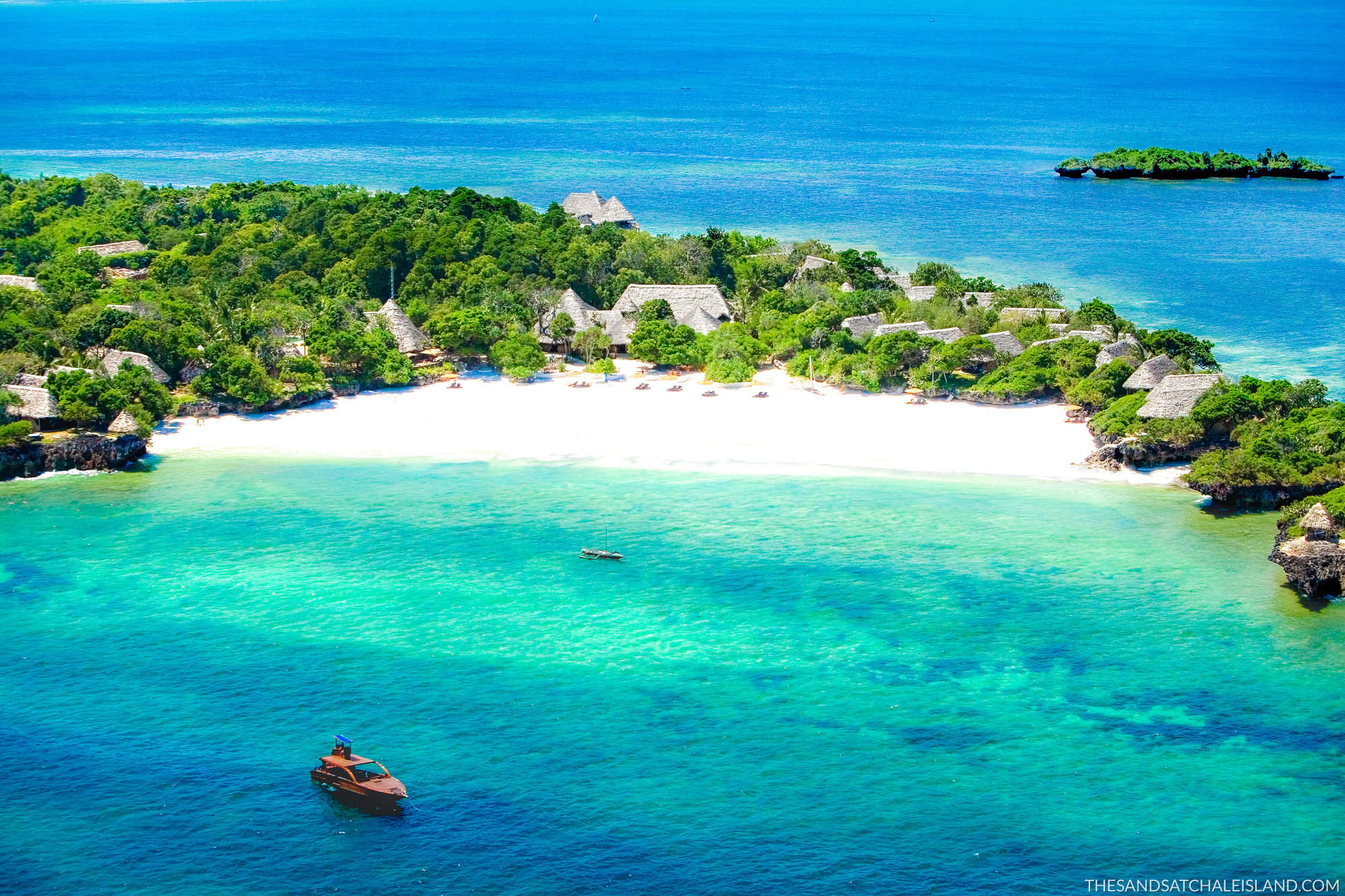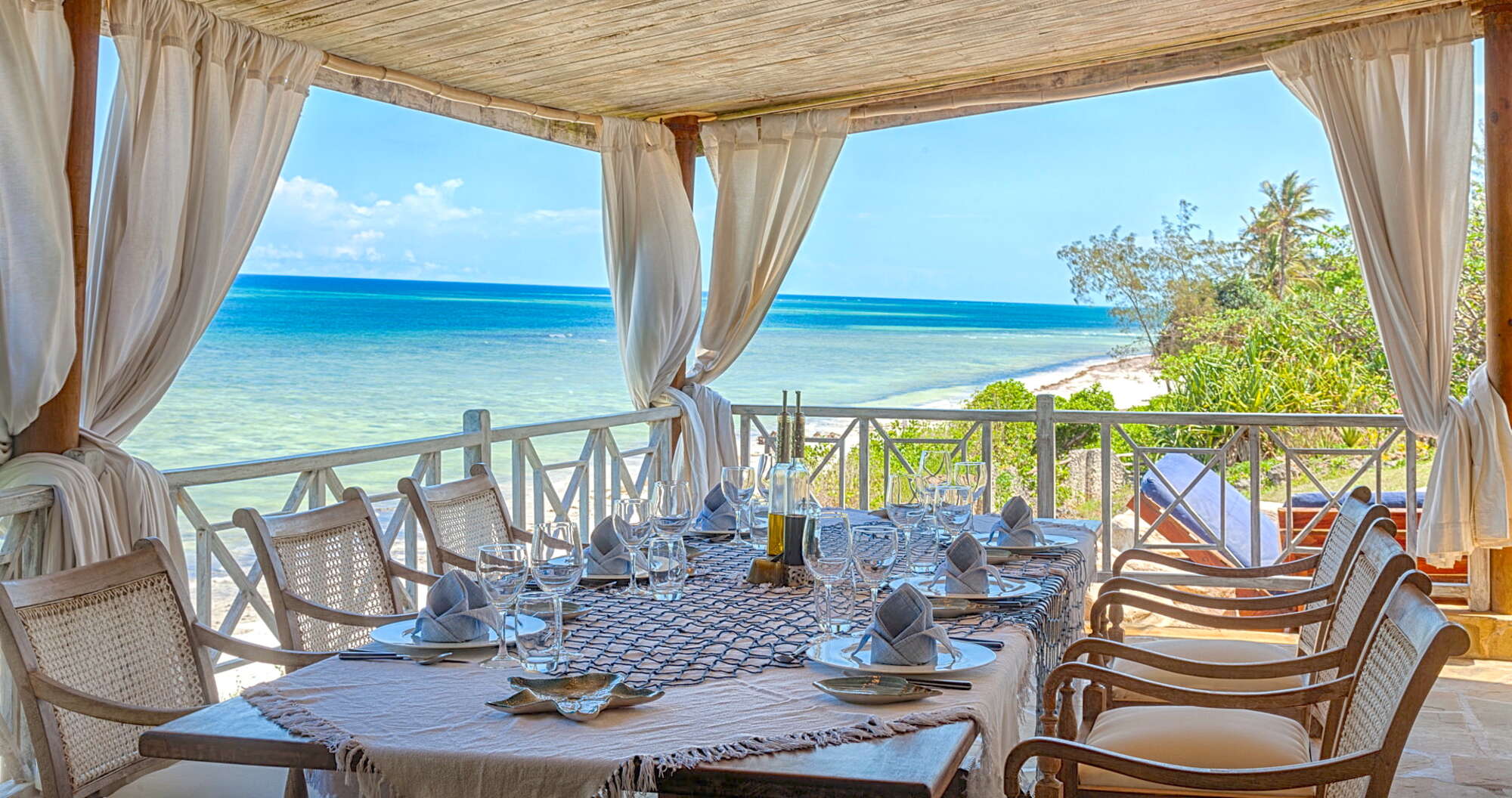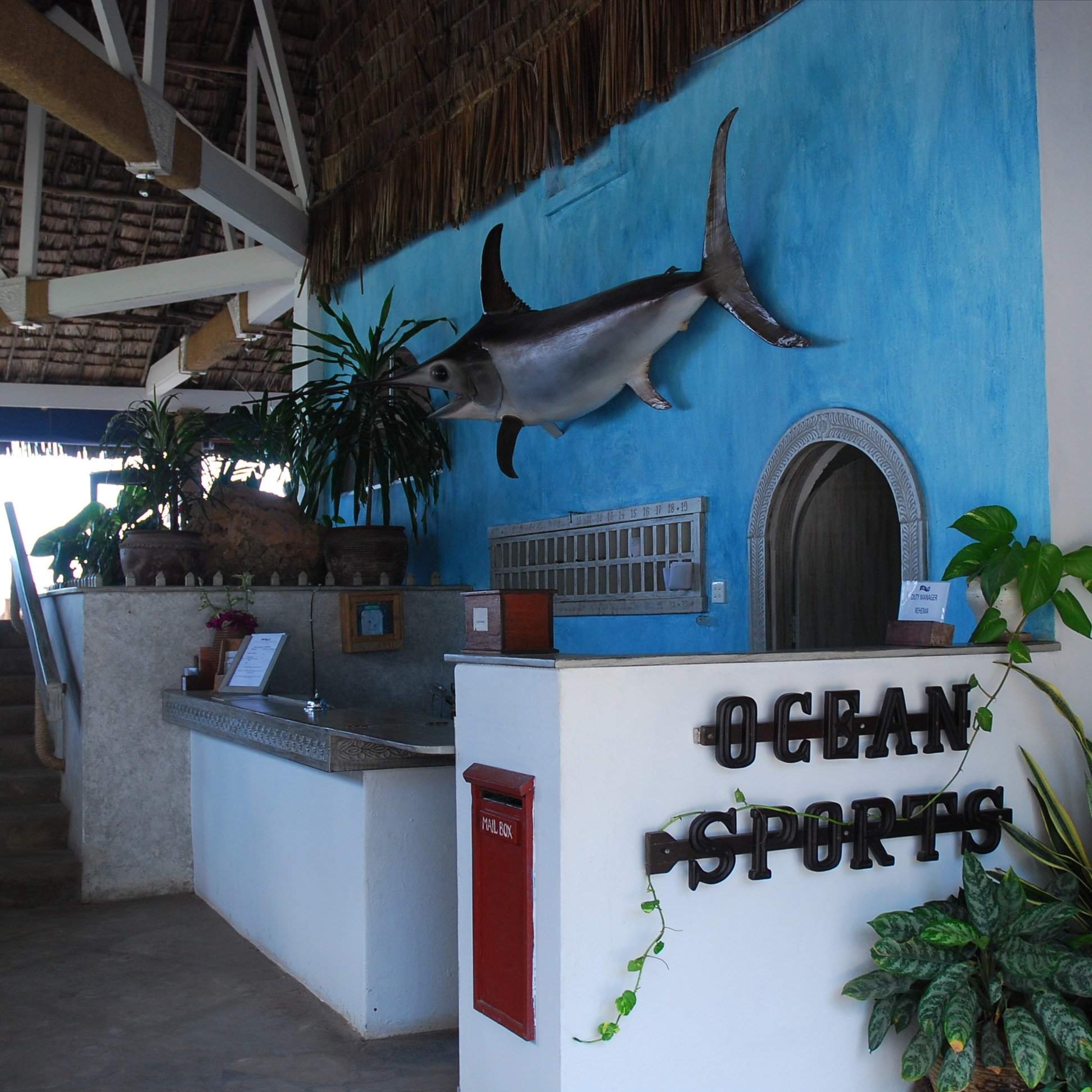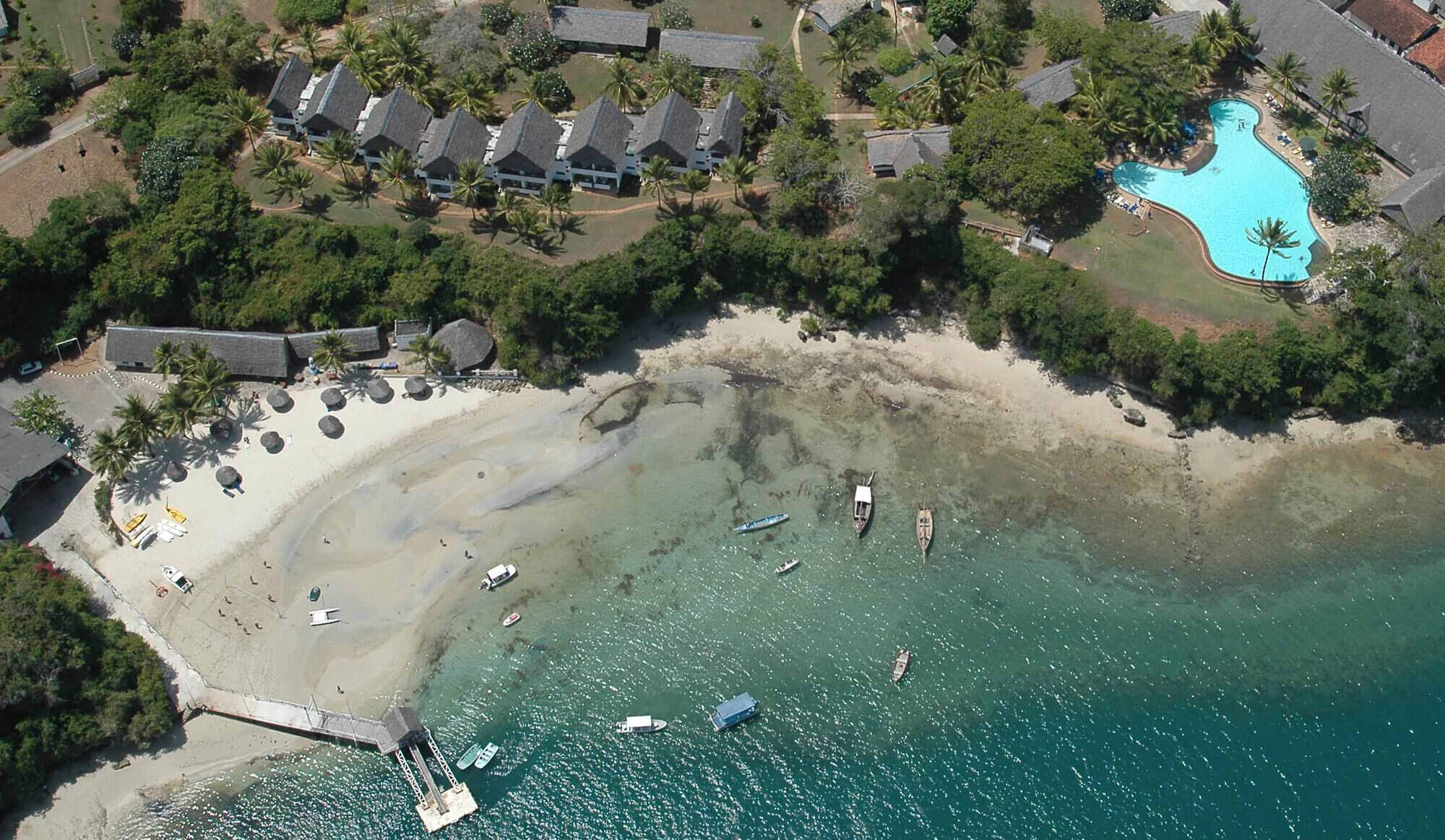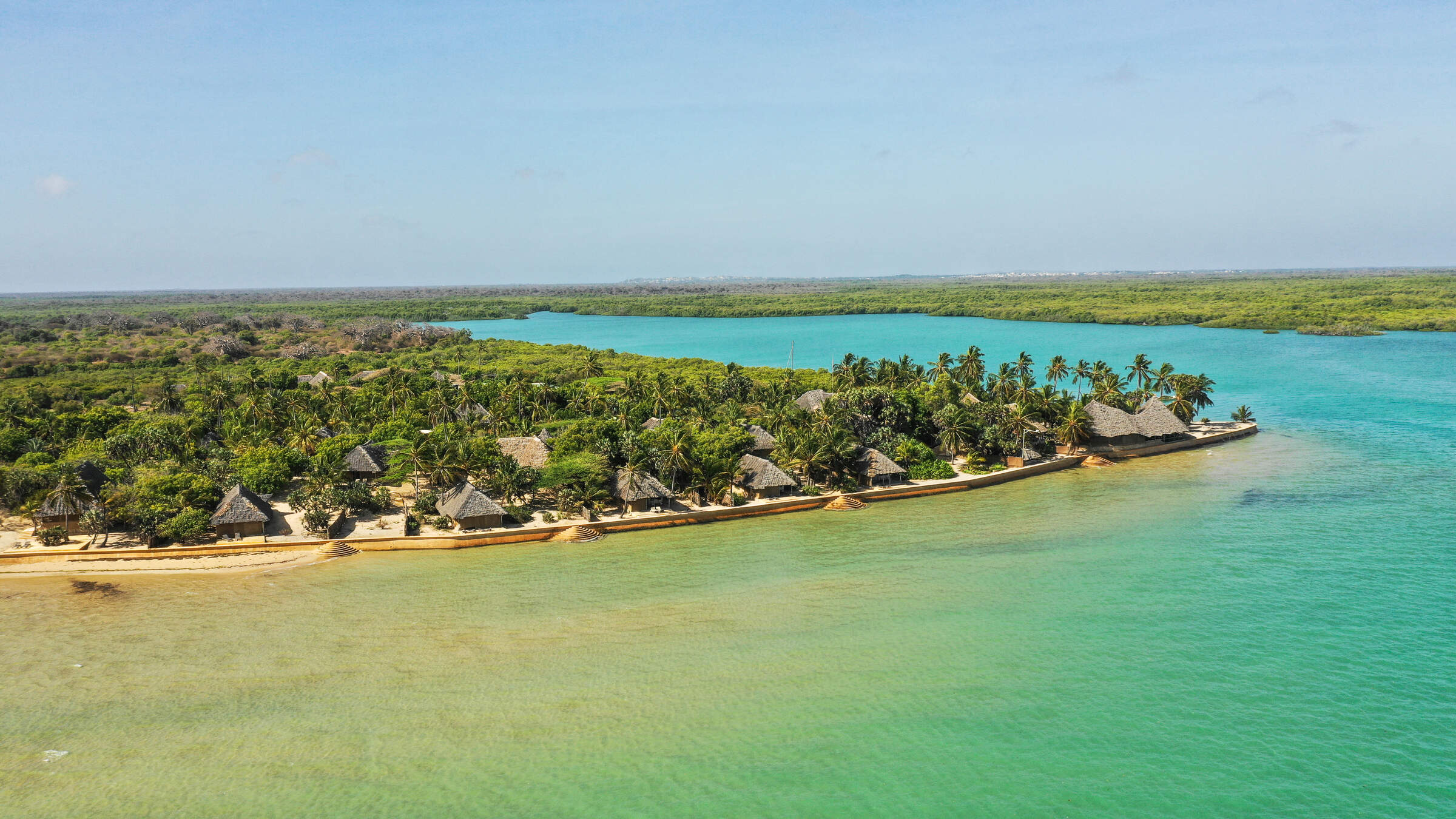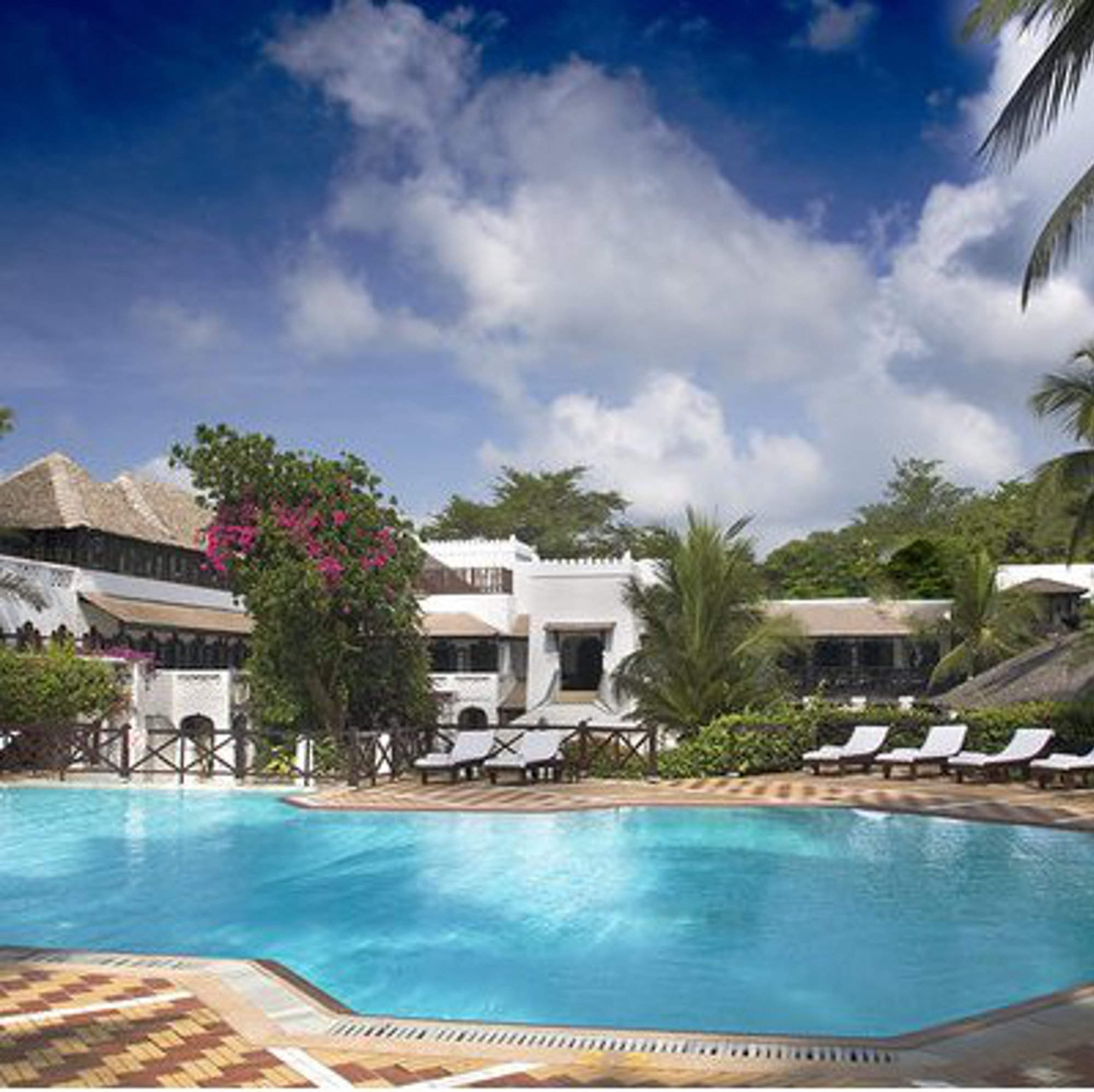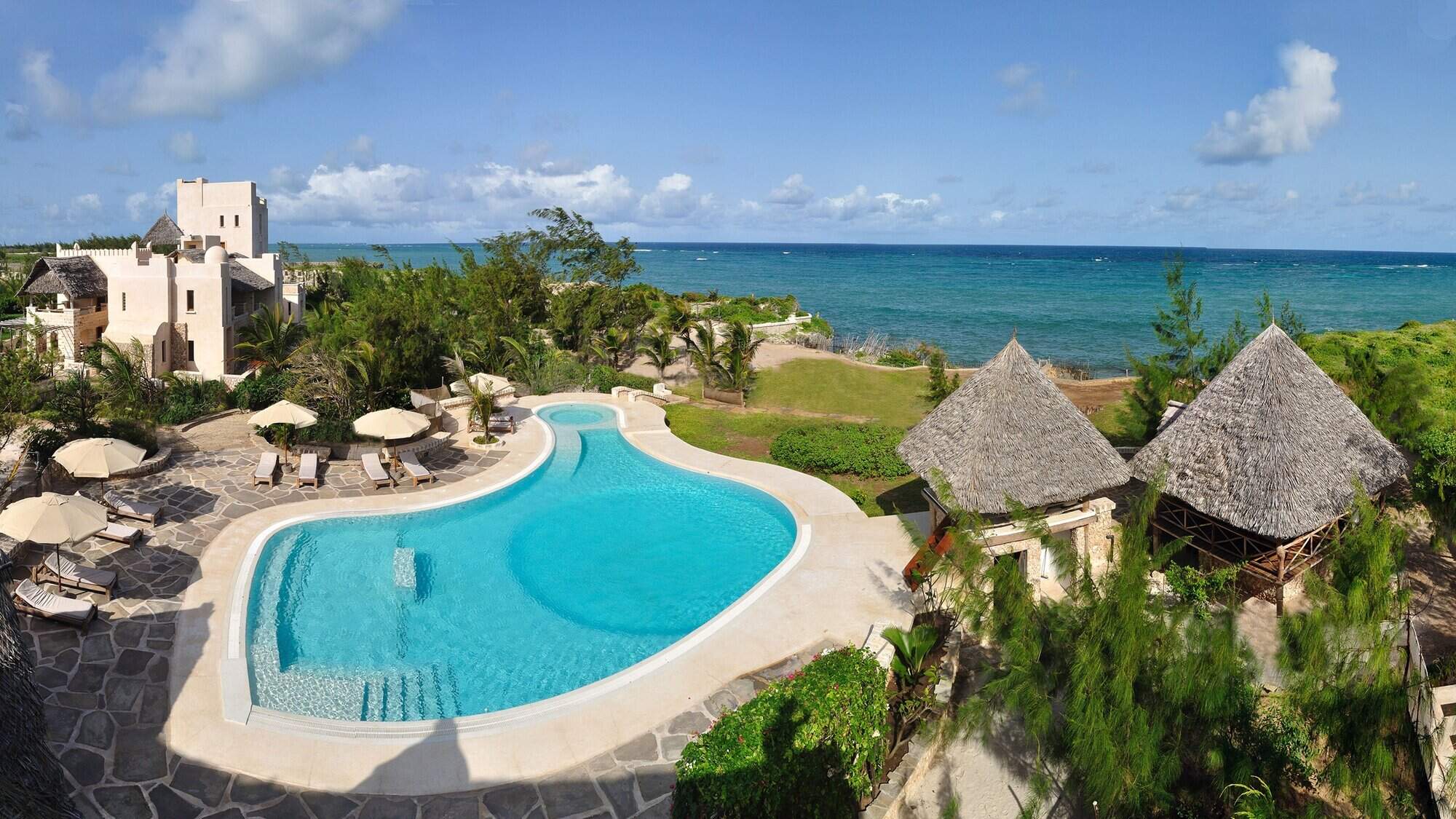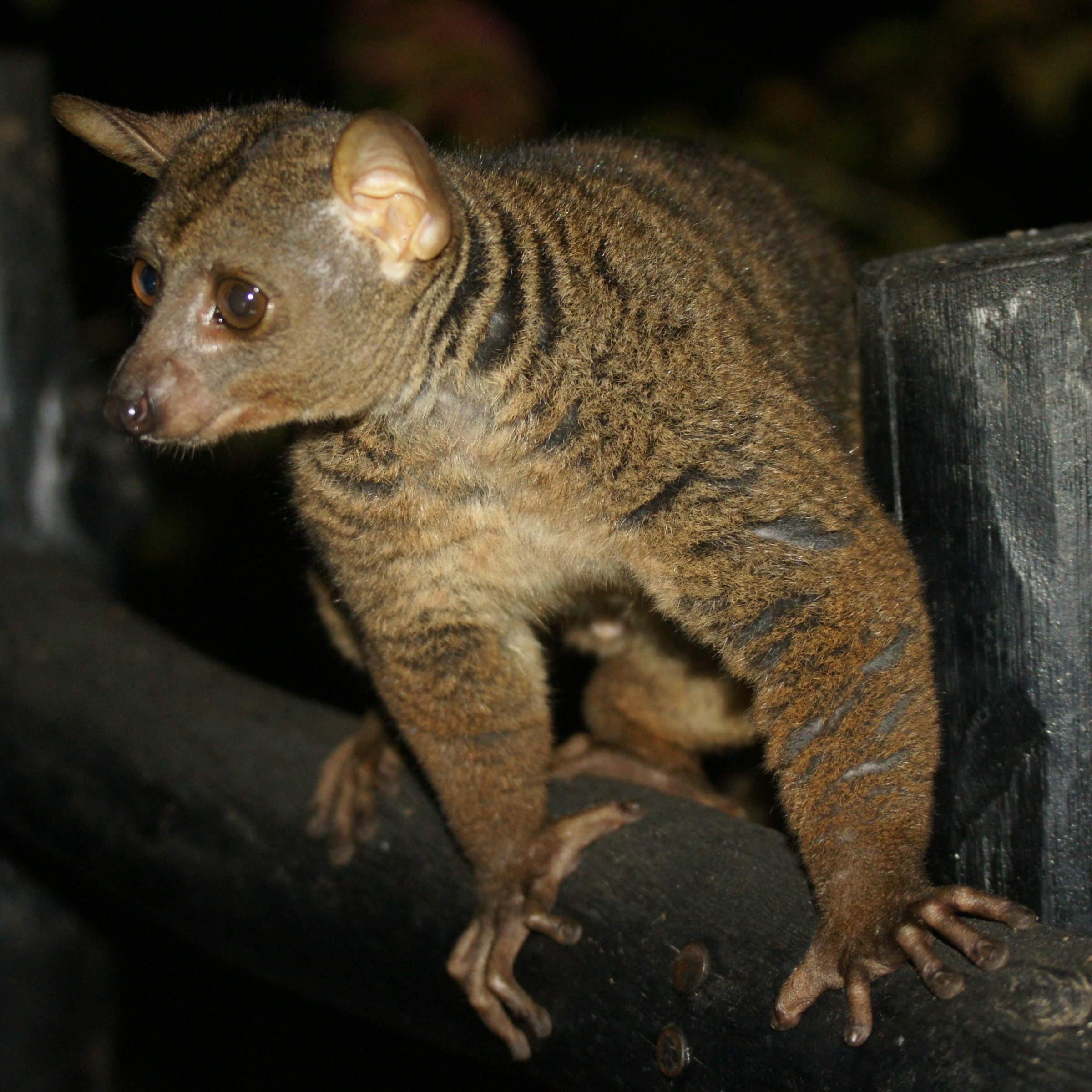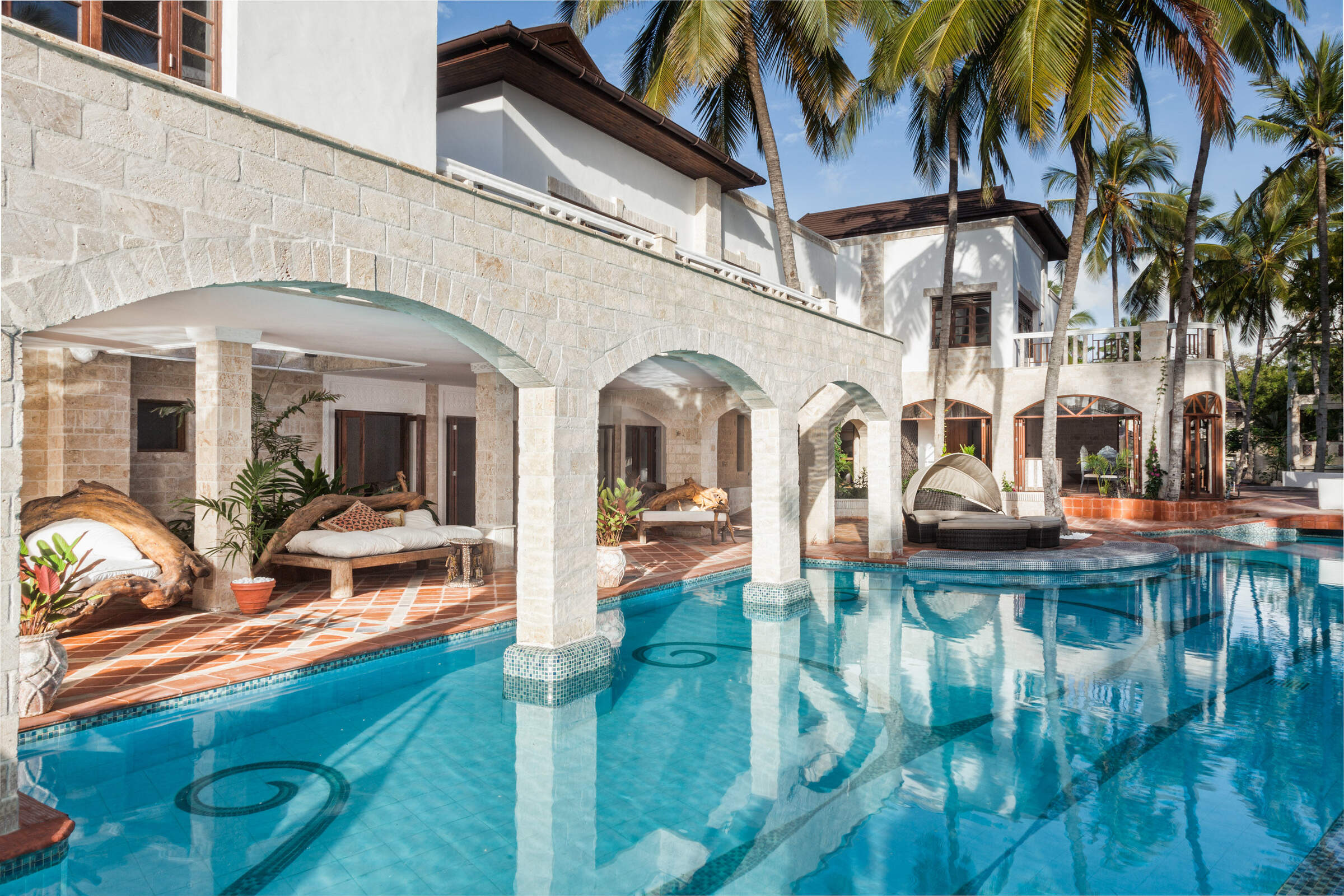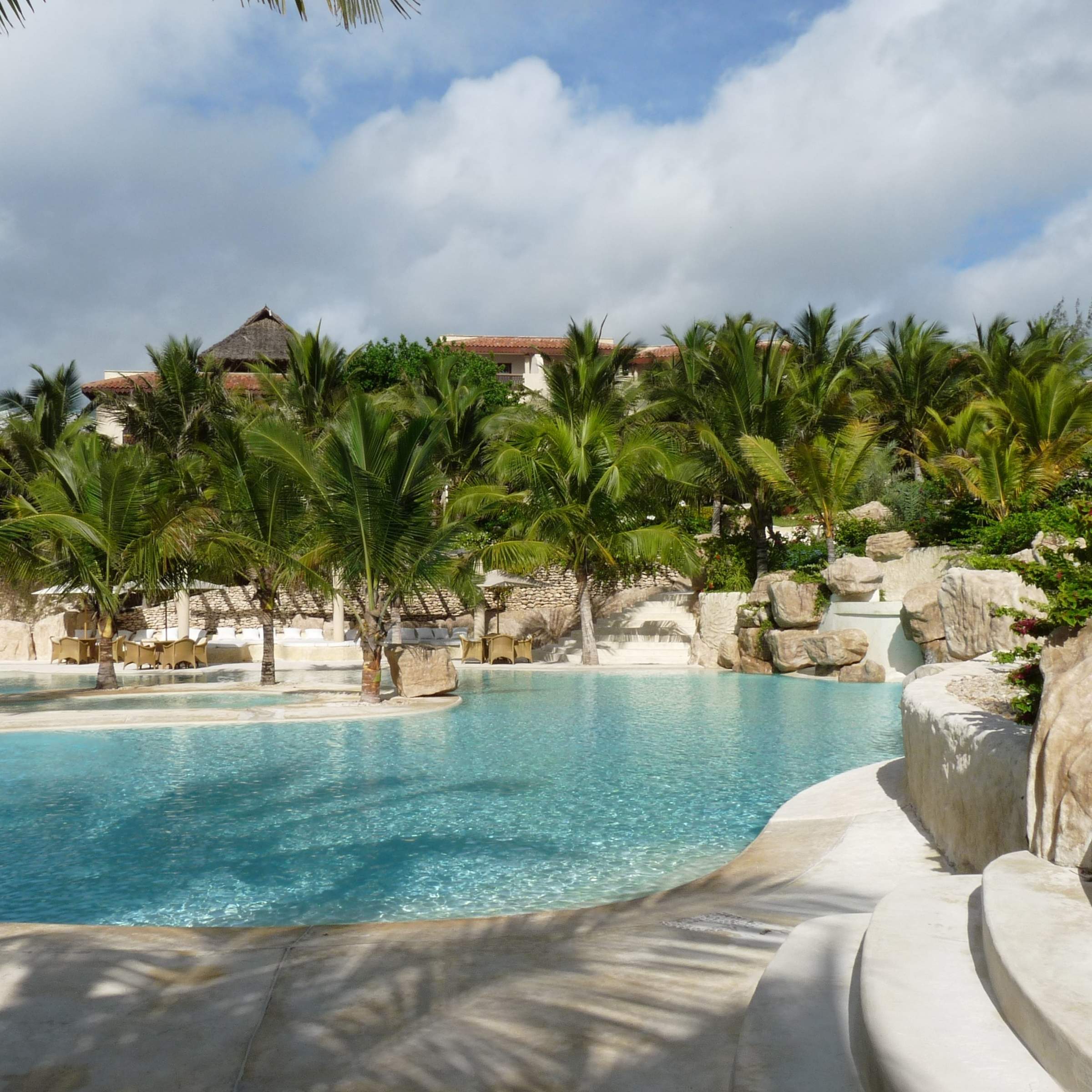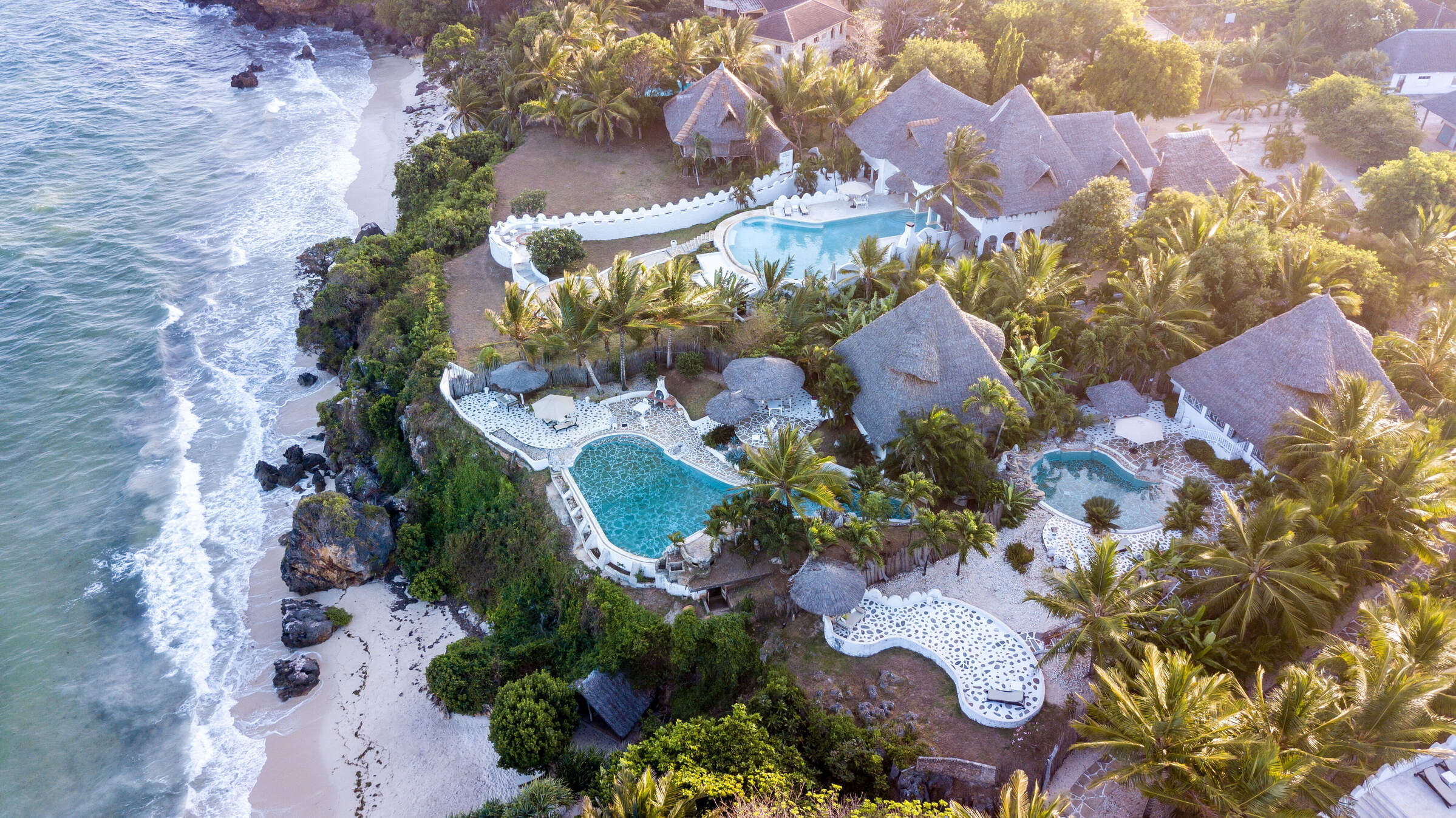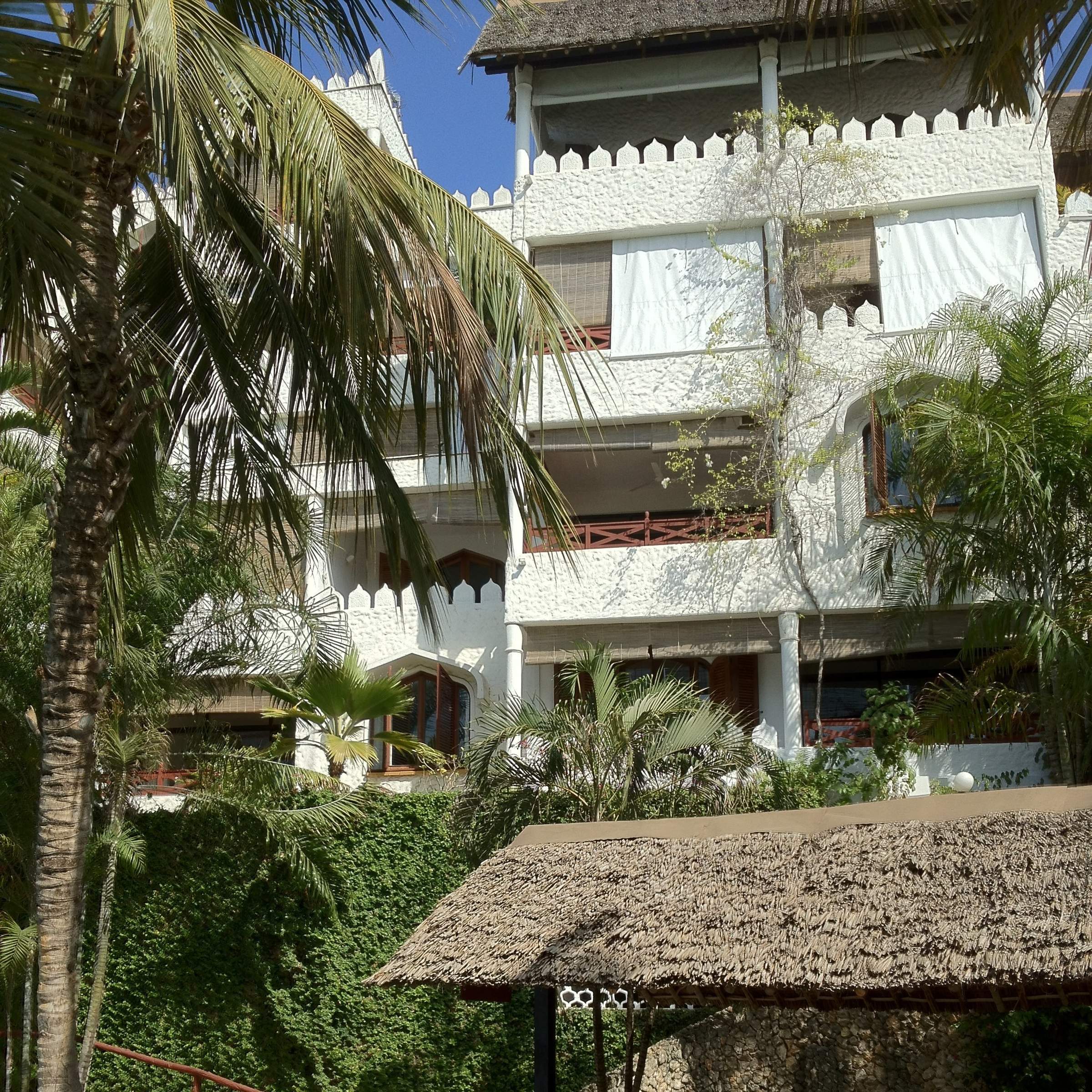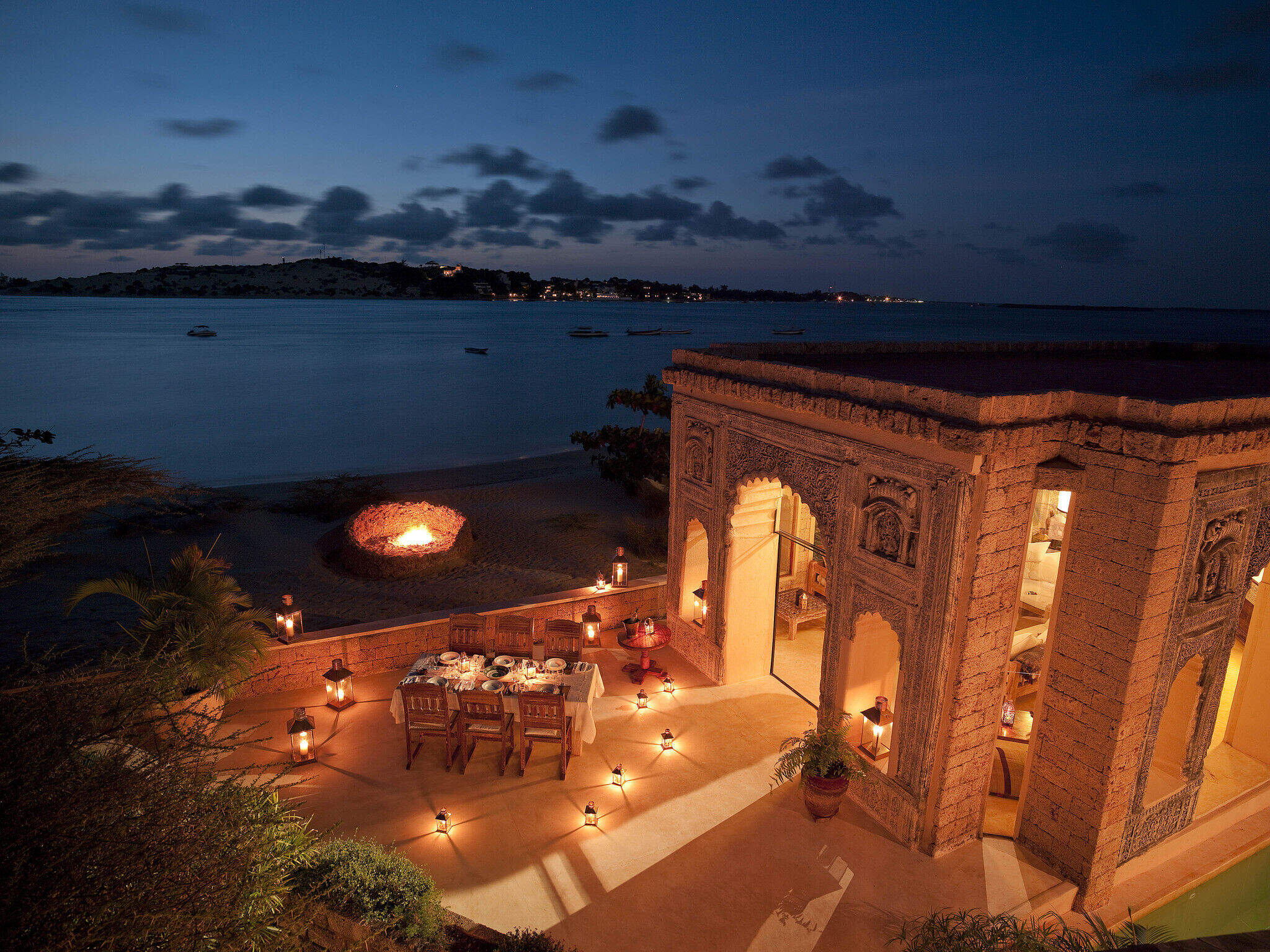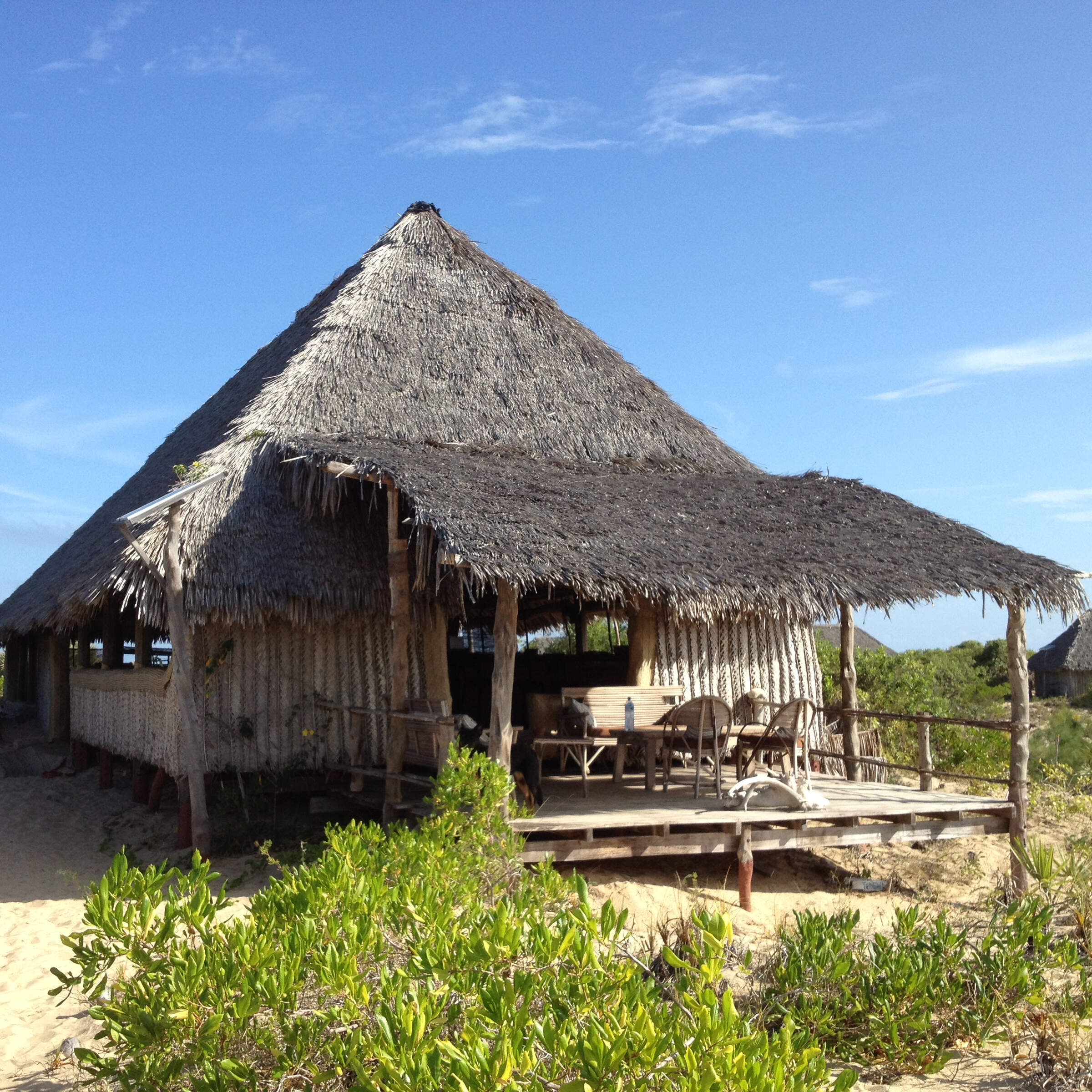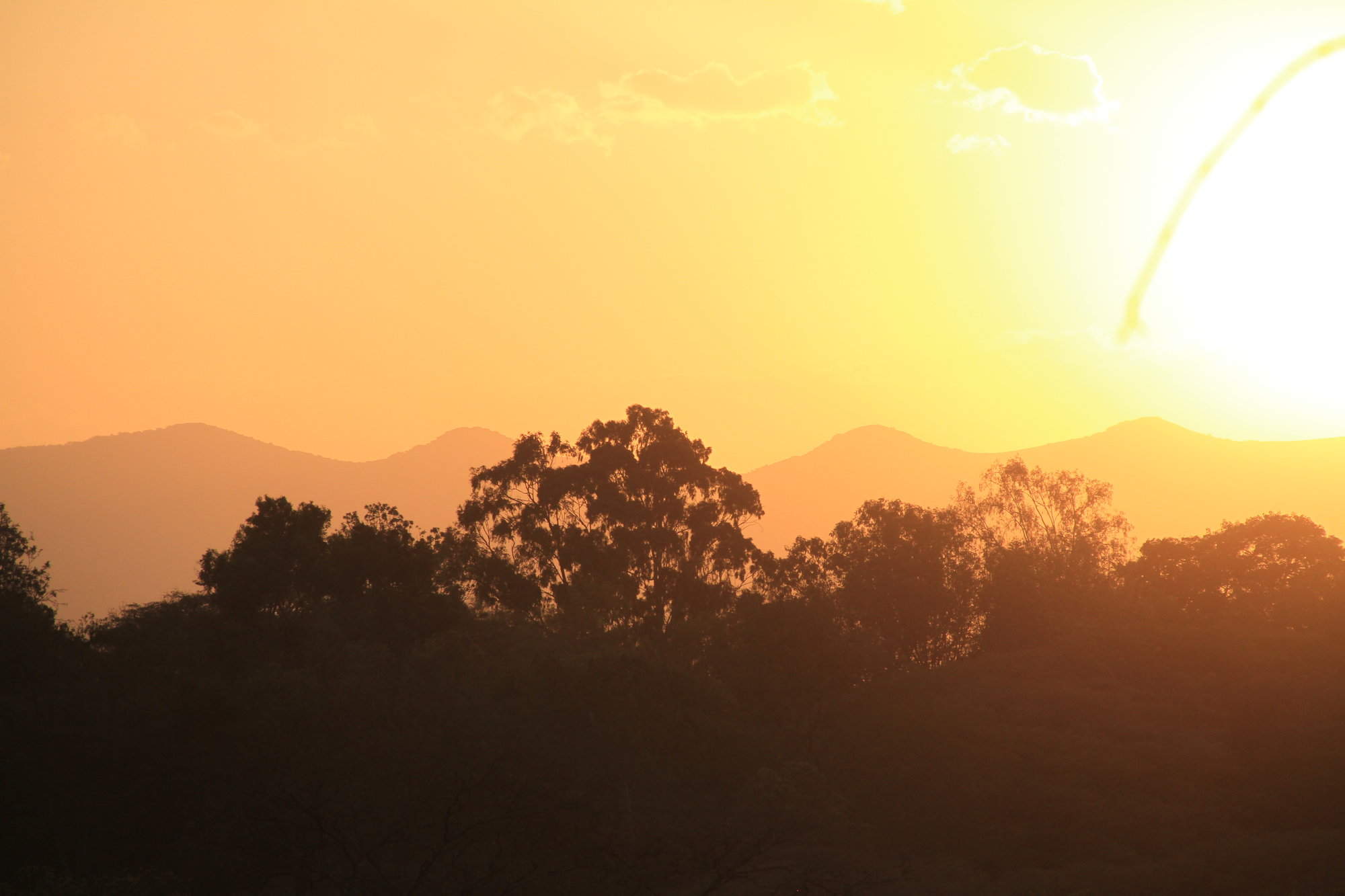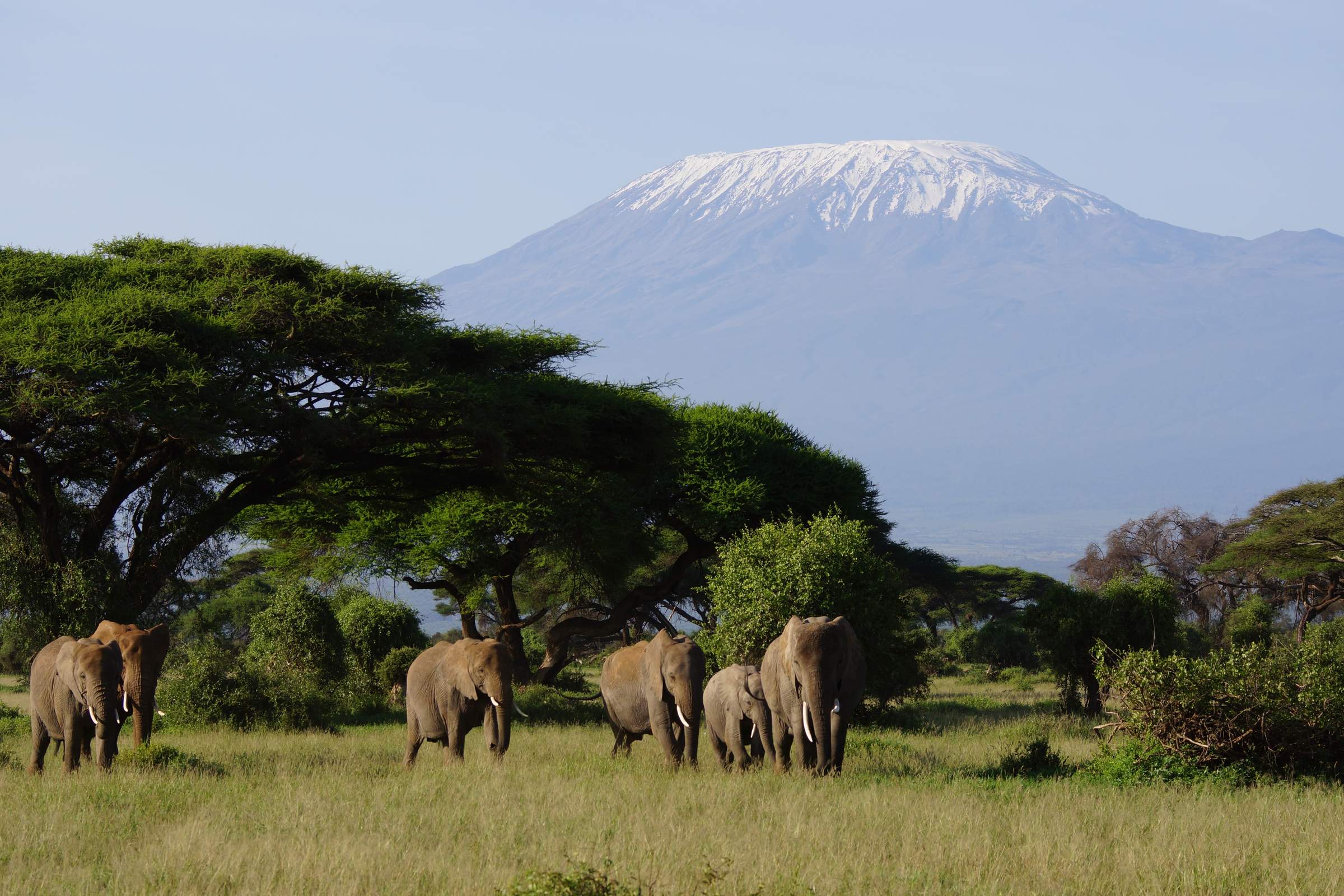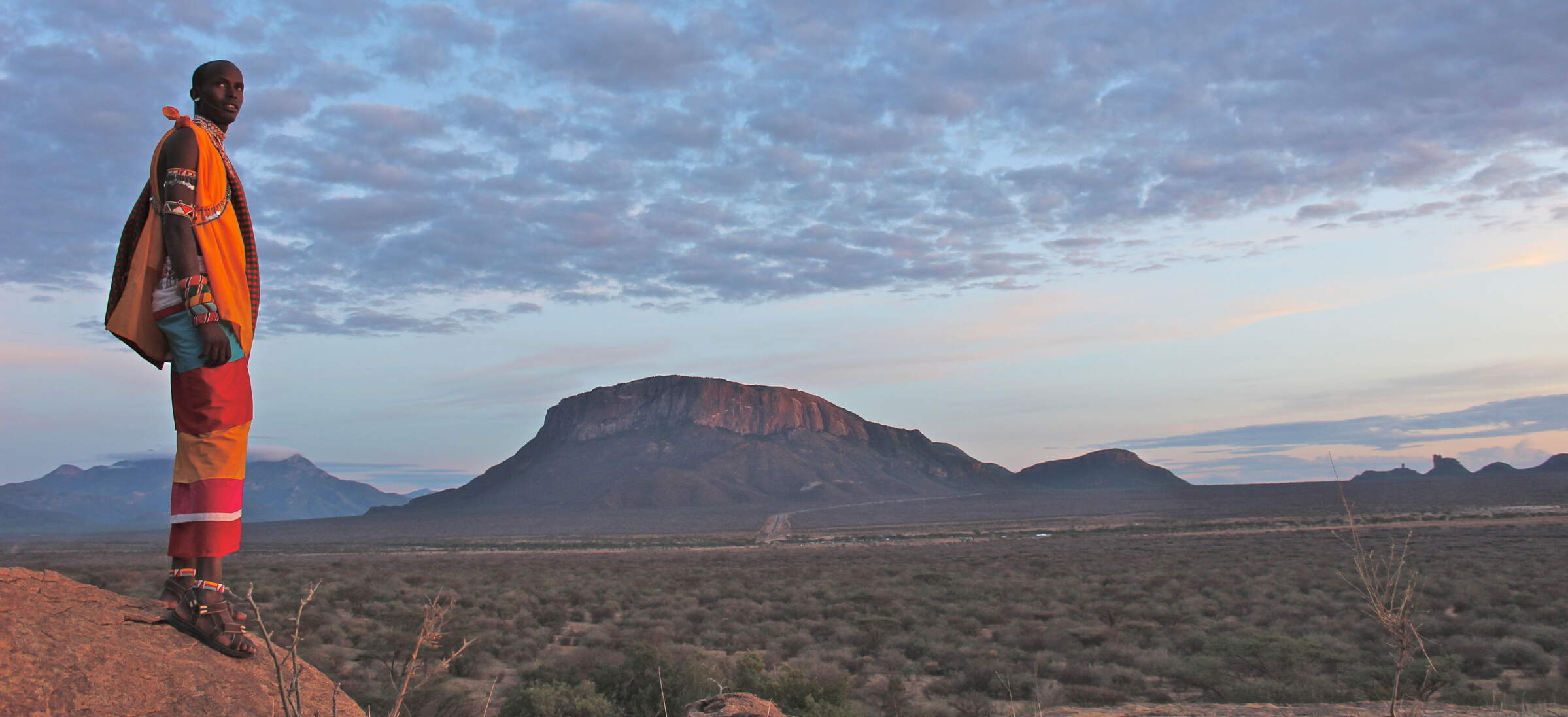Lamu House: Our full report
Lamu House is a fine property on the waterfront in Lamu town, based on two traditional houses, Salama and Azania.
The house is located towards the northern, less busy end of the waterfront, and its front faces out across Lamu creek towards Manda island, while the back of the house is on Lamu's main street.On the ground floor, they have an excellent à la carte terrace restaurant and bar, the Moonrise, allowing you to absorb the passing scene. It's lightly screened from the street itself by a low wall and foliage, making you feel part of Lamu but with some privacy.
Arriving at the hotel's dock (if it's low tide you'll have to wade ashore), staff will greet you and carry your bags a few metres to the hotel's entrance. There's a small atrium just off the waterfront, with the reception desk to one side. Then through a short passage you emerge into the central courtyard which is open to the sky, similar in style to a Moroccan riad. To the right there's a small plunge pool and quiet lounge area; to the left a full-size swimming pool, a large lounge area and an inside dining area. The owner's quirky and interesting paintings embellish many of the walls around the house and it's a pleasure to see work that, while it may not be to every guest's taste, is full of personal expression and curiosity.
Lamu House has 11 ensuite rooms, on three floors. Most have private terraces (two of them are seafacing), and all have comfortable beds and excellent bathrooms. Good mosquito nets hang over every bed and pulling them down is part of the hotel's useful evening turndown service. Mosquitoes aren't very often a serious problem in Lamu, but the nets guarantee a comfortable night. Verandas and terrace areas are furnished with recliners, daybeds or swing beds.
The rooms are furnished with traditional (and traditional-style) Swahili and other local furniture. The beds have bedside lights and tables; there are room safes; each room has a mini-fridge and clothes-hanging space. There is no air-conditioning, but the combination of sea breeze and traditional, air-cooled architecture (the Swahili box-style of building, with a courtyard and rooms around the walls, draws cool air from the narrow streets up to the hot rooftop surfaces) keeps things comfortable for most of the year, and the electric floor fan in every room is always an option. As is another tepid shower. You're likely to take several showers every day in Lamu, and the bathrooms at Lamu House seem designed with that fact in mind – large spaces, with walls decorated with softly sculpted plasterwork and niches (zidaka) and really attractive use of lighting and windows.
Some of the rooms downstairs can be a little dark: ideally get one upstairs at the front, or for maximum town atmosphere, take a room overlooking Harambee Avenue, the narrow alley that serves as Lamu's high street. The rooms at the back of Lamu House are Juu at the top (good for families, with a large roof terrace, big bed and bath tub) Katikati, Kulia, Kushoto, Dodori and Chini (right behind the swimming pool). Rooms at the front are Ndau and Kizingitini on the first floor and Siyu and Kiwaiyu on the second floor. These top floor rooms are ideal for families or larger groups as they join together. At the time of our visit in 2019 some of the rooms were undergoing refurbishment.
Bed and breakfast rates at Lamu House include: transfers from/to the airport jetty on Manda island; daily set-time transfers across Lamu Channel to Lamu House Beach Club on Manda island; free Wi-fi; a guided tour of Lamu town: and a free kikoi sarong to keep as a souvenir.
The main activity if you're staying in town is probably going to be exploring this ancient, UNESCO World Heritage Site. Don't imagine all of Lamu town is beautifully preserved or easy to uncover: you need to be prepared for some smelly drains, collapsed buildings treated as garbage dumps and a certain amount of shoulder-shrugging among the townspeople. But if you're equipped with a good guidebook (and ideally a good human guide as well) you'll find it gently rewarding and not physically taxing or a relentless hustle as some of the world's old cities can be. Lamu museum and Lamu Fort can happily absorb a couple of hours, and there are interesting wood carving and crafts shops, silversmiths and old groceries – not to mention local cafés, a donkey sanctuary and no less than 23 mosques – on which to focus your sightseeing and consumer interests. Despite the narrow alleys, the town is safe, and easy to navigate.
Up on the top floor of the house, two local women run yoga and massage sessions most mornings.
Daily dhow trips to a nearby beach depart at 9am and return at 4pm and is complimentary for Lamu House guests.
If you want more active activities, the hotel can provide excursions by sea all around Lamu island and further afield, in their Mozambique dhow or by speedboat. Excursions include:
- Full-day speedboat trip to Pate and Siyu (US$260, up to 5 people);
- 2-hour speedboat trip to Takwa ruins (US$75 for up to 6 people);
- 3-hour walk along Lamu Beach and speedboat back to the hotel (US$130 for up to 6 people);
- Sunset dhow cruise and starlight dinner (US$70 per person);
- Dhow trip and snorkeling with lunch (US$250 for up to 4 people);
Our view
There is not much choice of where to stay in Lamu Town, so Lamu House is a no-brainer when it comes to choosing a hotel with character that also delivers on comforts and location. We've stayed here in December 2013, and visited again briefly in November 2019, and we like almost everything about it - the building itself, the food and service, and the frosty beers. The rooms are perhaps a wee bit small, but they're traditionally scaled, so that is to be expected. If you see Lamu town as a destination to be explored and enjoyed in its own right, rather than simply as a place for a brief visit, then staying at Lamu House gives you the perfect base.
Geographics
- Location
- Kenya Coast, Kenya
- Ideal length of stay
- 3 days-plus to allow the atmosphere of Lamu to sink in and to rest up from the exertions of a safari.
- Directions
- Lamu House meets guests at the Lamu airport jetty, approximately a 5-10 minute boat journey across the Lamu Channel.
- Accessible by
- Fly-and-Transfer
Food & drink
- Usual board basis
- Bed & Breakfast
- Food quality
- The food in the restaurant at Lamu House is reliable, well-prepared and appetising and the dining terrace at the front of the house is a good location – open to the waterfront without putting customers on show.
Breakfast includes all the usual cooked options, cereals, toast and an excellent fruit plate brought to the table. There was plenty of juice and good cafétière coffee. We didn’t eat lunch here (and we could also have taken a free boat transfer across the channel to the Lamu House Beach Club, and had lunch there), but there was a good choice of options on the à la carte menu at dinner and our meal included very good jumbo prawn dishes – either curry-style or Belgian-style – for $25 a head. - Dining style
- Individual Tables
- Dining locations
- Indoor and Outdoor Dining
- Drinks included
- Drinks are reasonably priced, with beers at about US$4, house wine at US$4 a glass and various wines from the wine list from US$20–40 a bottle.
Children
- Attitude towards children
- Children are welcome, but the atmosphere is fairly adult and in practice Lamu House has few families staying.
- Property’s age restrictions
- None.
- Equipment
- Traditional baby cots are available.
- Generally recommended for children
- Children would probably be happier staying on the beach in Shela or across the channel on Manda (daily trips to the Lamu House Beach Club – a free transfer – could be the answer).
Communications
- Power supply notes
- Electricity comes from Lamu’s very noisy power station at the southern end of the town’s waterfront. The backup generator at Lamu House rarely has to be used – around once a month.
- Communications
- The hotel has free Wi-fi and there is reasonable mobile network.
- TV & radio
- There is no TV – guests can go to the bar at Petley’s Inn, just along the waterfront.
- Water supply
- Mains
- Water supply notes
- Water for the kitchen goes through ionisation treatment. Lamu House also has its own well as backup. And again all the well water is treated before being used.
Health & safety
- Malarial protection recommended
- Yes
- Medical care
- The hotel has first aid kits and the owner is first-aid trained – as are some of the staff, who have had Red Cross training. There are clinics and doctors in town.
- Dangerous animals
- Low Risk
- Security measures
- There is night-time security, but otherwise the reception desk is staffed and ensures only staff and residents are allowed into the hotel.
- Fire safety
- Lamu House is very fire-aware, with 15 fire extinguishers dotted around the property and staff having fire training twice a year.
Activities
Birdwatching
Boat trip
Scuba-diving
Snorkelling
Watersports
Extras
- Disabled access
- On Request
- Laundry facilities
- Laundry costs extra. It’s machine-washed and line-dried.
- Money
- All the rooms have small guest safes. Foreign exchange can usually be offered.
- Accepted payment on location
- Visa and MasterCard (but not Amex) are accepted in payment with no surcharge. All major currencies (including US dollars, Pounds sterling, Kenyan shillings and Euros) can be used to settle your bill.
Other lodges in Kenya Coast
Alternative places to stay in this same area.

